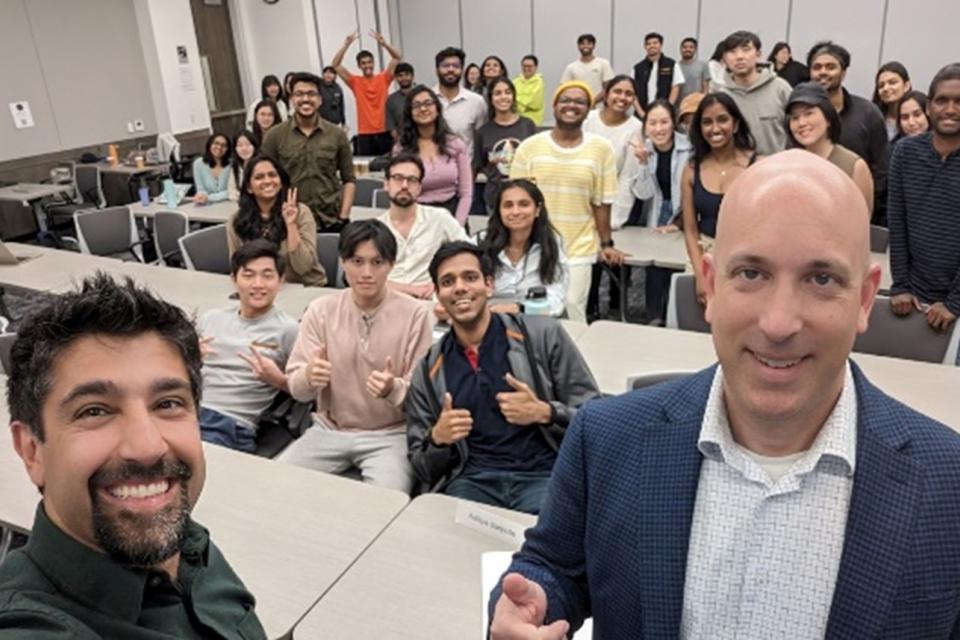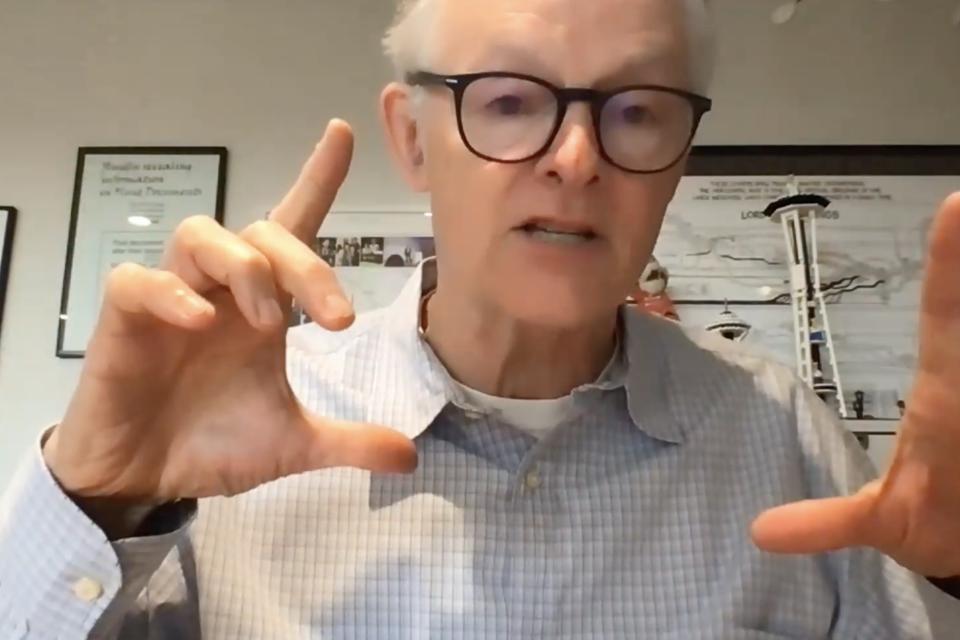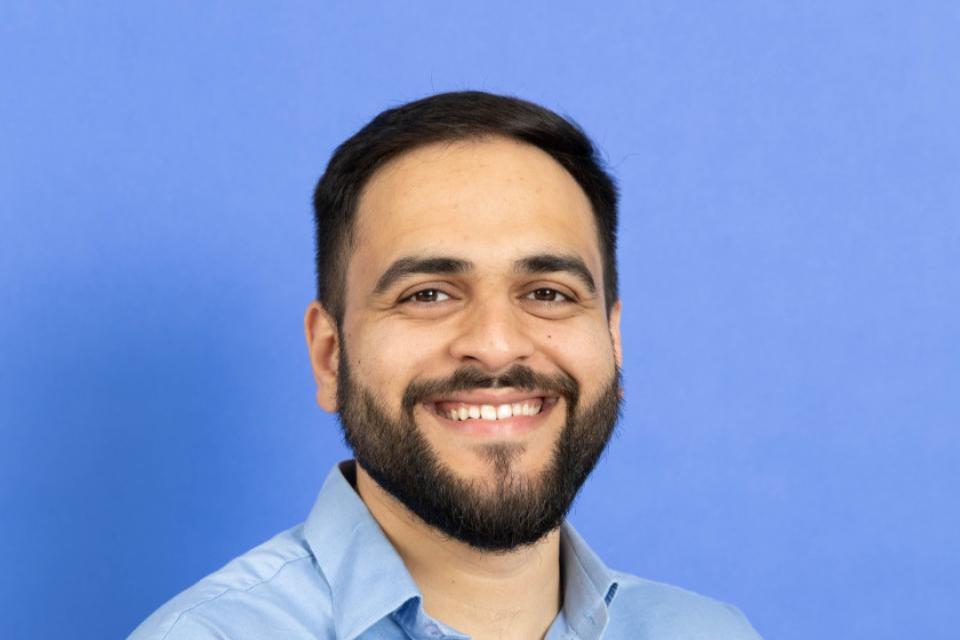Microsoft Exec Inspires My UC Davis Students with AI Vision
MSBA Guest Lecturer: Marco Casalaina, VP of products, Azure AI, Microsoft

As an instructor in the UC Davis Master of Science in Business Analytics program, I was thrilled to welcome back Marco Casalaina, a true visionary in the world of AI, for his fourth guest lecture.
Casalaina, who is the vice president of products for Azure AI at Microsoft, has an impressive track record of driving innovation in the field of artificial intelligence.
Before joining Microsoft two years ago, Casalaina spent five years at Salesforce, where he served as the senior vice president of product management for Einstein, Salesforce's AI platform.
With his wealth of experience spanning Microsoft, Salesforce and beyond, Casalaina has consistently been at the forefront of pushing the boundaries of what's possible with AI and cognitive services.
His passion for making complex products usable and bringing the benefits of artificial intelligence to everyone makes him an ideal guest speaker to enlighten our class about the latest advancements in Azure AI.
Key Insights on AI
Casalaina's presentation focused on three key themes: Ubiquity, Multimodality, and Autonomy in Azure AI. Here are the takeaways of his guest lecture.
On the ubiquity and multimodality of Azure AI
“What we're trying to bring is the new age of artificial intelligence to be so ubiquitous as to be indispensable, and those are the kinds of tools that we're trying to provide. It can see, it can also speak, it can generate images too."
On the rise of AI agents and their capabilities
"An AI agent is something that can execute complex tasks, like complex, long-running tasks that generally require both long and short-term memory. You don't really program them exactly. You program it the same way that I was doing with GPT before, like, 'You are a smart data analysis tool,' and the rest of it, it does by itself."
On the potential of small language models like MSFT-3
"From a sustainability perspective, from a cost perspective, from a latency perspective, things like this completely change the economics of AI, and it opens up the possibility that you can run it on the edge, on the laptop, in the car, and you can start to distribute the processing."
His unique perspective inspired and guided our students as they prepare to shape the future of AI and analytics.
As an instructor, I am incredibly grateful for Casalaina's ongoing commitment to sharing his expertise with our program. His talks serve as a testament to the exciting possibilities that lie ahead in the world of AI and the importance of staying agile and adaptive in an ever-evolving landscape.
We look forward to welcoming him back for more enlightening discussions in the future.


